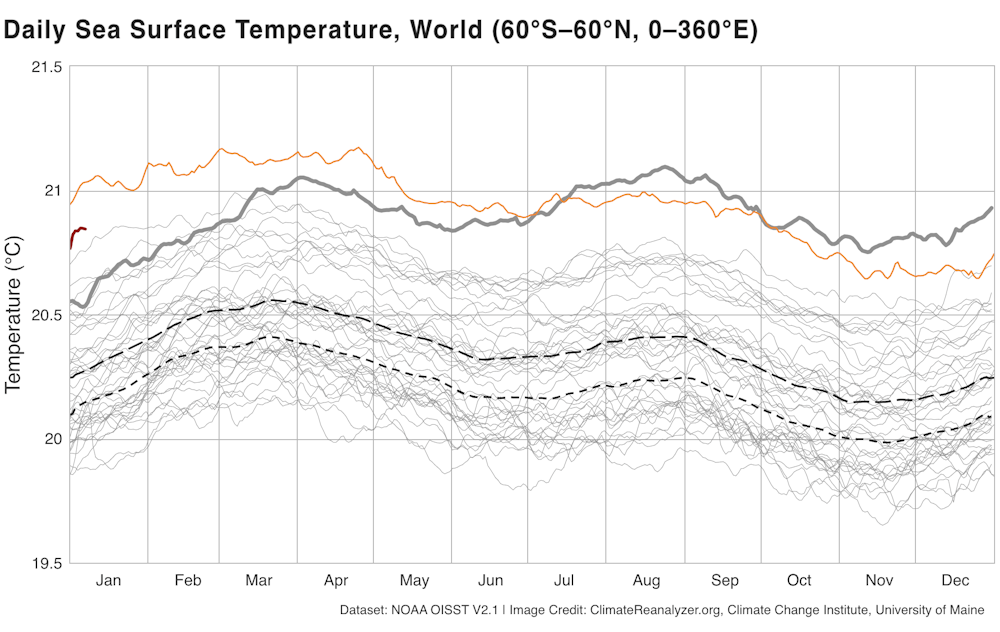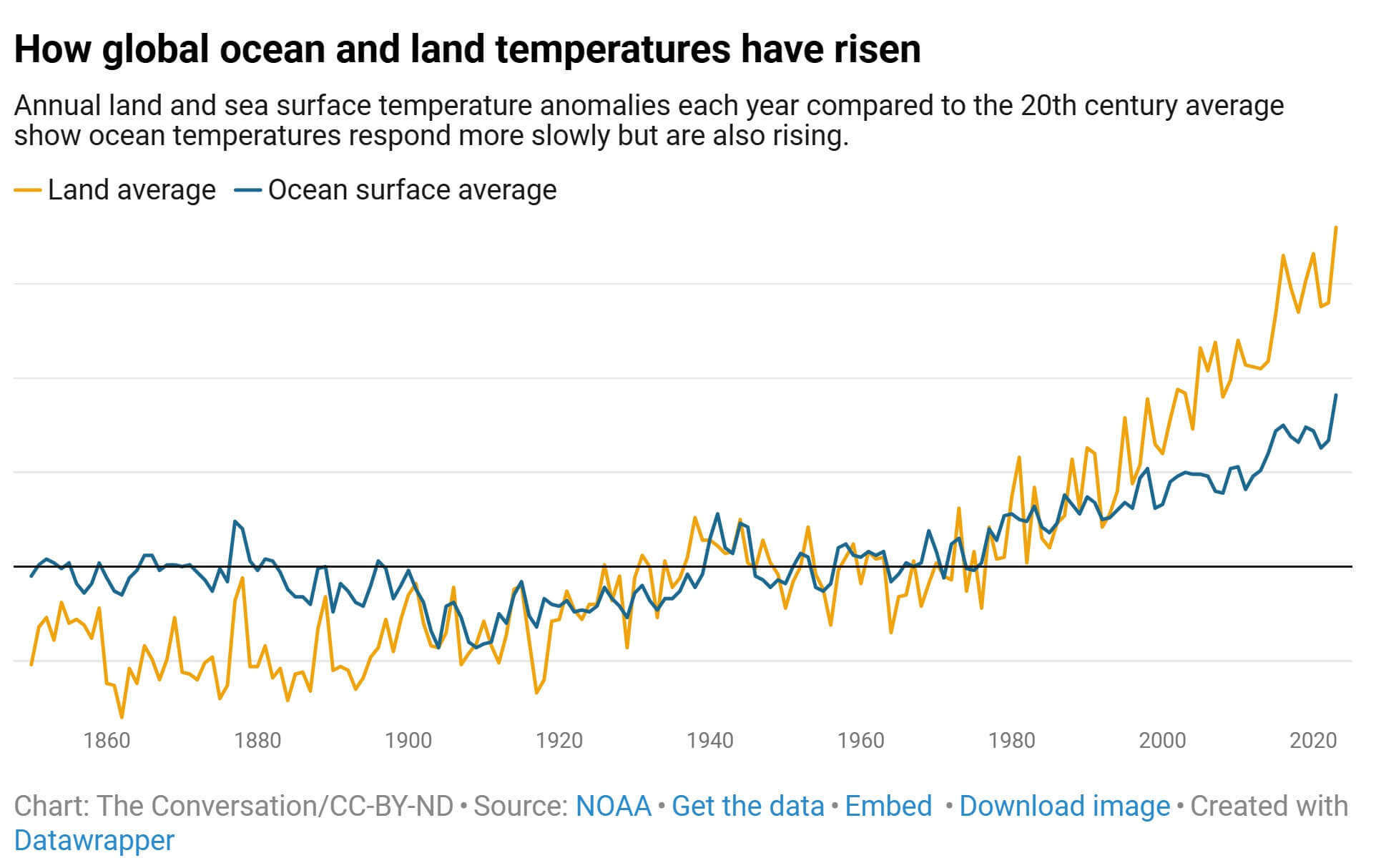The Oceans Are Heating Up: Unraveling the Mysteries of Record-Breaking Ocean Heat
[By Prof. Annalisa Bracco]
The oceans are heating up as the planet warms. This past year, 2024, was the warmest ever measured for the global ocean, following a record-breaking 2023. In fact, every decade since 1984, when satellite recordkeeping of ocean temperatures started, has been warmer than the previous one.
A warmer ocean means increased evaporation, which in turn results in heavier rains in some areas and droughts in others. It can power hurricanes and downpours. It can also harm the health of coastal marine areas and sea life – coral reefs suffered their most extensive bleaching event on record in 2024, with damage in many parts of the world.
Climate Change and Ocean Warming
Warming ocean water also affects temperatures on land by changing weather patterns. The EU’s Copernicus Climate Change Service announced on Jan. 10 that data showed 2024 had also broken the record for the warmest year globally, with global temperatures about 2.9 degrees Fahrenheit (1.6 Celsius) above pre-industrial times. That would mark the first full calendar year with average warming above 1.5 C, a level countries had agreed to try to avoid passing long-term.

Climate change, by and large, takes the blame. Greenhouse gases released into the atmosphere trap heat, and about 90% of the excess heat caused by emissions from burning fossil fuels and other human activities is absorbed by the ocean.
The El Niño Factor
The cyclic climate pattern of the El Niño Southern Oscillation can explain part of the warmth over the past two years. But the oceans have been even warmer than scientists expected, leading to mysteries that need solving.

An intriguing idea is that a reduction in aerosols over the past decade may be one of the culprits for the unexpected warming. Aerosols are solid and liquid particles emitted into the atmosphere that can counteract the impact of greenhouse gases.
Is This a Warming Surge?
The second puzzle is whether the planet is experiencing a warming surge. While temperatures are clearly rising, the rate of warming has not shown a significant change since around the 1970s. However, the extreme impacts witnessed in recent years point to the urgent need to reduce carbon dioxide emissions to limit ocean warming.

From a statistical standpoint, scientists cannot exclude the possibility that the record ocean warming in 2023-2024 resulted from the ongoing warming trend. Regardless, swift action is needed to address the impacts of climate change.
Annalisa Bracco is a Professor in Ocean and Climate Dynamics in the School of Earth and Atmospheric Sciences at Georgia Tech. Her research focuses on climate variability, geophysical flows, and their interactions with biological and chemical tracers.
This article appears courtesy of The Conversation. Original article can be found here.
the title: “The Benefits of Mindfulness Meditation”
In today’s fast-paced world, many people find themselves feeling overwhelmed and stressed. From work deadlines to family obligations, it can be easy to get caught up in the chaos of everyday life. However, one practice that has been gaining popularity in recent years for its ability to calm the mind and reduce stress is mindfulness meditation.
Mindfulness meditation is a form of meditation that focuses on being present in the moment and paying attention to your thoughts and feelings without judgment. By practicing mindfulness meditation regularly, individuals can experience a wide range of benefits for their mental and physical well-being.
One of the key benefits of mindfulness meditation is its ability to reduce stress and anxiety. By focusing on the present moment and letting go of worries about the future or regrets about the past, individuals can experience a sense of calm and relaxation. Studies have shown that regular mindfulness meditation can lower levels of the stress hormone cortisol, leading to a more peaceful state of mind.
In addition to reducing stress, mindfulness meditation has also been shown to improve overall mental health. By cultivating a greater sense of awareness and self-compassion, individuals can develop a more positive outlook on life and better cope with difficult emotions. Research has found that mindfulness meditation can reduce symptoms of depression and anxiety, as well as improve mood and overall well-being.
Furthermore, mindfulness meditation has been linked to improved physical health as well. Studies have shown that practicing mindfulness meditation can lower blood pressure, improve sleep quality, and boost the immune system. By reducing stress and promoting relaxation, mindfulness meditation can have a positive impact on overall health and wellness.
In conclusion, mindfulness meditation is a powerful practice that offers numerous benefits for both the mind and body. By taking the time to cultivate mindfulness in your daily life, you can experience greater peace, clarity, and well-being. Whether you are looking to reduce stress, improve mental health, or enhance physical wellness, mindfulness meditation is a valuable tool that can help you achieve a greater sense of balance and harmony in your life.

